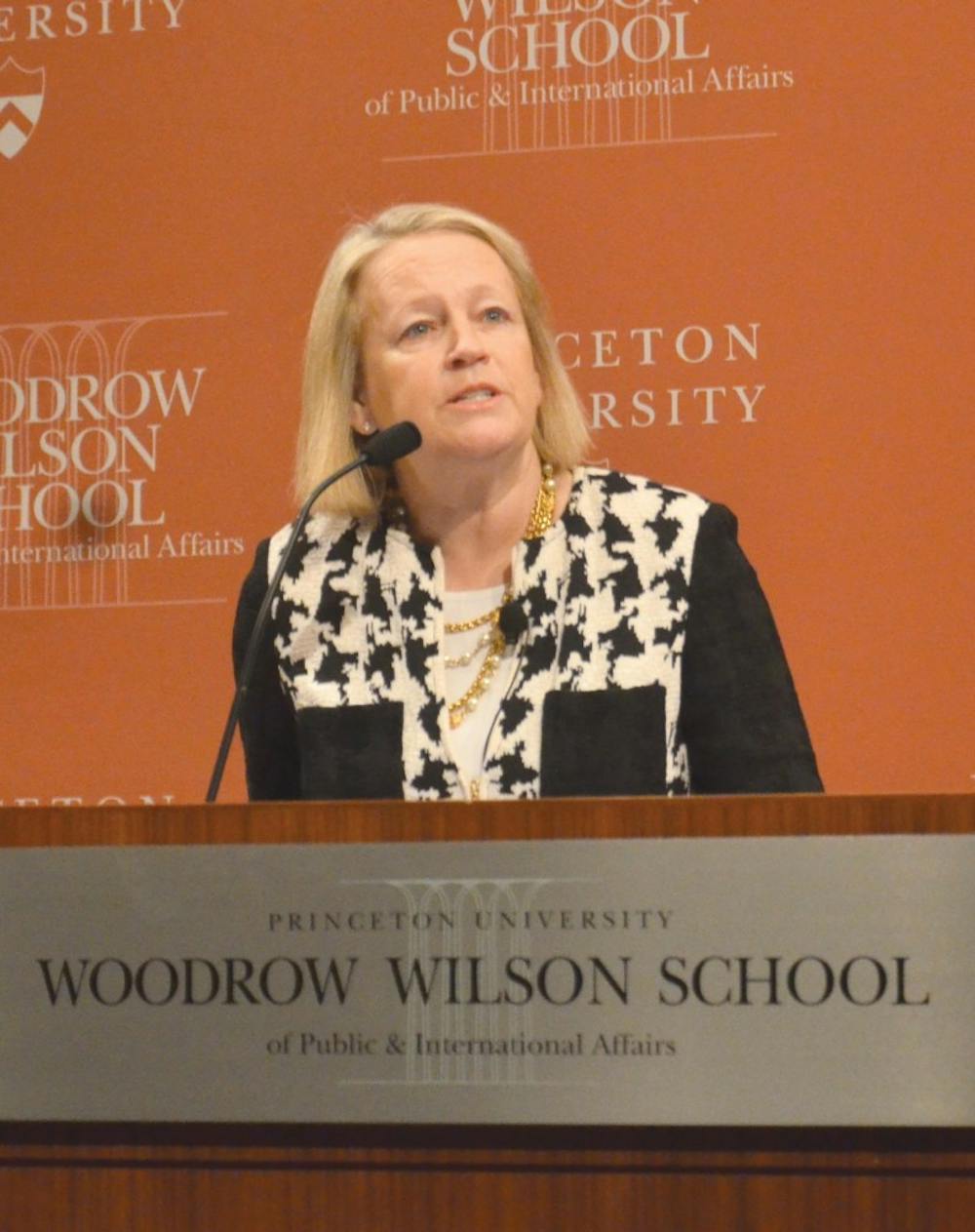Transparency and accountability in financial markets are keys to investor confidence, former U.S. Securities and Exchange Commission Chairman Mary Schapiro argued at a Wilson School lecture Wednesday evening. Schapiro spoke in conversation with Wilson School professor Alan Blinder as part of the Wilson School’s Program in Leadership and Governance.
Schapiro joined the SEC in January 2009, just seven weeks after the initial arrest of Bernie Madoff. She explained that at that time the SEC was facing a reputation crisis, noting that previous administrators had considered eliminating the agency altogether.
“My timing was just awful,” Schapiro said. She joked that she had curled into the fetal position under her desk after accepting the position of chairman. However, Schapiro said, her previous experience at the SEC — she served as one of five SEC commissioners from 1988 to 1994 — led her to accept the job with the hope that she could help the agency find its way again.
Schapiro said her main goal upon joining the SEC was to increase the transparency and accountability of the financial market in order to form a resilient and reliable market structure. The financial industry is highly complex and is largely a force for good, Schapiro said, but “none of that works if we don’t have investor confidence.”
She explained that by increasing transparency, both of the financial industry and of the SEC itself, the SEC could help regain the confidence of its investors, which would strengthen markets. When asked about the rise of Bitcoin, Schapiro said its lack of transparency made her very nervous.
“That lack of transparency, that lack of accountability, at the end of the day, that’s very worrisome,” Schapiro said.
Speaking of her time at the SEC, Schapiro said the SEC is always doing everything it can to hold individuals accountable for their actions, particularly following the bad press it had gotten for failing to catch Bernie Madoff earlier. She noted that during her tenure the SEC brought forth 150-160 cases directly related to the financial crisis, adding that about 60 CEOs were penalized either through fines, injunctions or bans from serving as executives of public companies.
“We always try to hold individuals accountable if we can,” Schapiro said, noting that while it isn’t always possible to put people in jail, the SEC does the best it can to return money to investors.

Schapiro also addressed the often criticized redundancy of having six different regulatory agencies in Washington. Of the six, Schapiro has worked at three: the SEC, the Commodity Futures Trading Commission and the Financial Industry Regulatory Authority.
Schapiro noted that politics is ofteninvolved in keeping the six agencies alive, as different congressional committees have jurisdiction over each. Although they can cause great inefficiency, since all six agencies must collaborate to pass rules such as the Volcker Rule and often have different priorities, Schapiro said the creation of the Financial Stability Oversight Council has helped to reduce this inefficiency and also noted that having six agencies allows for a checks-and-balances system of financial regulation.
Schapiro was chairman of the SEC from 2009 to 2012 and was its first female chairman. During her tenure, Schapiro sought to repair the damage done by what she claimed was underregulation during the 2008 crisis, bringing a record number of enforcement actions and returning over $6 billion to investors. In 2009, she was ranked as the 56thmost powerful woman in the world by Forbes Magazine.
Schapiro spoke at 4:30 p.m. on Wednesday in Dodds Auditorium.









